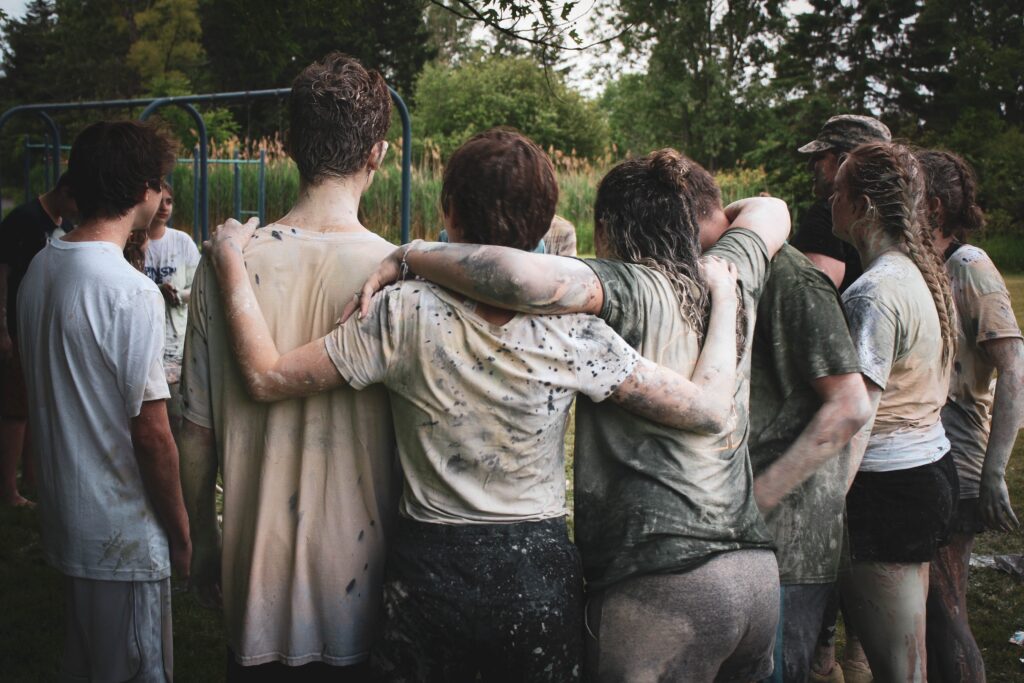
School camping trips can be a valuable opportunity for students to not only learn about the great outdoors, but also to develop teamwork and leadership skills. By stepping out of the classroom and into a new environment, students are faced with unique challenges and responsibilities that can help them grow and learn in ways that may not be possible in a traditional educational setting. Whether it’s setting up camp, cooking meals, or participating in team-building activities, students have the chance to work together, communicate effectively, and take on leadership roles as they navigate the experience of camping together. In this blog post, we’ll explore how school camping trips can help students build teamwork and leadership skills, and provide tips for educators looking to plan a successful camping trip for their students. You can also check out our blog on The Importance of planning and organizing for a School camp.
One key aspect of building teamwork and leadership skills during a school camping trip is through group activities and team-building exercises. These activities can be as simple as a group hike or as challenging as a ropes course, but the goal is always the same: to help students learn how to work together as a team.
Some additional ideas for group activities and team-building exercises that can help students build teamwork and leadership skills during a school camping trip include:
- Group problem-solving activities: These activities can involve challenges such as building a shelter or finding a way to cross a simulated body of water using only a limited set of materials. These types of activities can help students learn how to communicate effectively, delegate tasks, and think critically as a team.
- Trust-building exercises: These activities can involve activities such as trust falls or other activities that require students to rely on each other for support. These activities can help students learn to trust and support one another, which is an important aspect of teamwork.
- Outdoor survival skills training: Learning outdoor survival skills such as building a fire or finding food can be a great way for students to work together and use their problem-solving skills.
- Leadership roles and responsibilities: Assigning leadership roles to different students can be a useful way to teach them how to take charge and lead a group. This can involve tasks such as planning meals, organizing group activities, or leading a hike.
- Team sports and games: Participating in team sports or games such as soccer, basketball, or capture the flag can be a fun way for students to practice teamwork and communication skills.
During these activities, students learn how to communicate effectively, listen to each other’s ideas, and support one another in achieving a common goal. They also learn how to delegate tasks and responsibilities, and how to manage their time and resources efficiently. These skills are all essential for building a strong and cohesive team, and they can be applied to any situation, whether in the classroom or in the workplace.
Another important aspect of building teamwork and leadership skills during a school camping trip is through leadership roles. Many schools will assign students to take on leadership roles during their camping trip, such as trip leader, cook, or first aid officer. These roles provide students with the opportunity to take on additional responsibilities and learn how to lead and manage a team.
For example, the trip leader might be responsible for organizing the group’s activities and making sure everyone is on track and following the schedule. The cook might be responsible for preparing meals and managing the group’s food supplies. And the first aid officer might be responsible for administering basic first aid and responding to any emergencies that arise.
By taking on these leadership roles, students learn how to make decisions, delegate tasks, and communicate effectively with their team. They also learn how to handle the pressure and responsibility of being in charge, and how to adapt to new and challenging situations. These are all valuable skills that will serve them well in any leadership position they may take on in the future.
Finally, school camping trips can provide students with the opportunity to develop their problem-solving and critical thinking skills. Whether they’re navigating unfamiliar terrain, building a shelter, or managing limited resources, students are constantly faced with challenges and obstacles that require them to think on their feet and come up with creative solutions.
By working together as a team, students can brainstorm and share ideas, and come up with solutions that they may not have thought of on their own. This helps them learn how to think critically and logically, and how to approach problems from different angles. These skills are essential for any leader, and they can be applied to any situation, from managing a group project to solving a complex problem at work.
In conclusion, school camping trips provide an ideal setting for students to develop their teamwork and leadership skills. Through group activities, leadership roles, and problem-solving challenges, students learn how to work effectively as a team, communicate and delegate responsibilities, and think critically and creatively. These skills will serve them well in any future endeavors, and they will be well prepared to take on leadership roles in their communities and in the workplace.
Leave a Reply